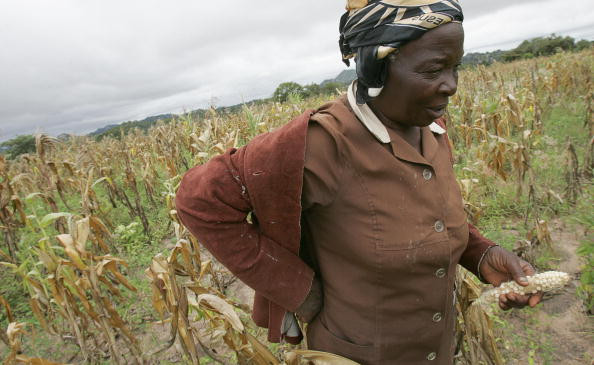Zimbabwe: Four million face hunger as maize is running out and aid deadline looms

At least four million people are facing hunger in Zimbabwe due to a severe drought, a state-owned newspaper has revealed. Lack of rains have resulted in losses of crops making this year's harvest – which typically takes place in March and April – almost impossible for nearly one third of the population, who lives by cultivating maize, a staple food in Zimbabwe.
At least 14 million people in Zimbabwe and surrounding nations, where people mostly rely on agricultural practices for their survival, have been impacted by the drought exacerbated by the El Nino phenomenon, caused by warm water in the Pacific Ocean.
NGOs such as World Vision are running programmes assisting thousands of people by, among other things, delivering maize and oil to thousands of families on behalf of the World Food Programme (WFP). However, the programme is due to end in April.
Zimbabwe's public service, labour and social welfare minister Prisca Mupfumira told the Herald newspaper that the government stocks of maize will last for three months. "Indications are that the figure of vulnerable households requiring food assistance could be as high as four million people. This has been further compounded by the fact that our social partners are winding their programmes at the end of March 2016," she said.
The minister added that the situation "was under control" and the country was planning to import maize from neighbouring countries and distribute it in the most affected areas. "While the labour-constrained households will continue to receive free food, those that are not will be expected to participate in the food-for-work programme. Of all the people categorised under vulnerable, there are some who can work."
Mupfumira also denied food was distributed on political grounds and stressed beneficiaries are not asked to produce a "party card" when they receive aids. WFP said the crisis might deepen in the upcoming months as food and cash stocks will diminish while the price of maize is due to increase.
"Zimbabwe's harvest was reduced by half compared to the previous year as a result of massive crop failure," WPF said in a statement. "South Africa, the major breadbasket of the region, has indicated that this El Niño-induced drought is the worst the country has suffered in more than half a century. Underlying southern Africa's vulnerability to food and nutrition security are alarming rates of chronic malnutrition. Levels of stunting among children in Madagascar, Malawi, Mozambique and Zambia are among the worst in the world."
© Copyright IBTimes 2025. All rights reserved.




















